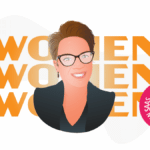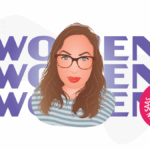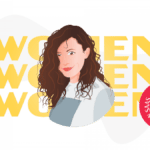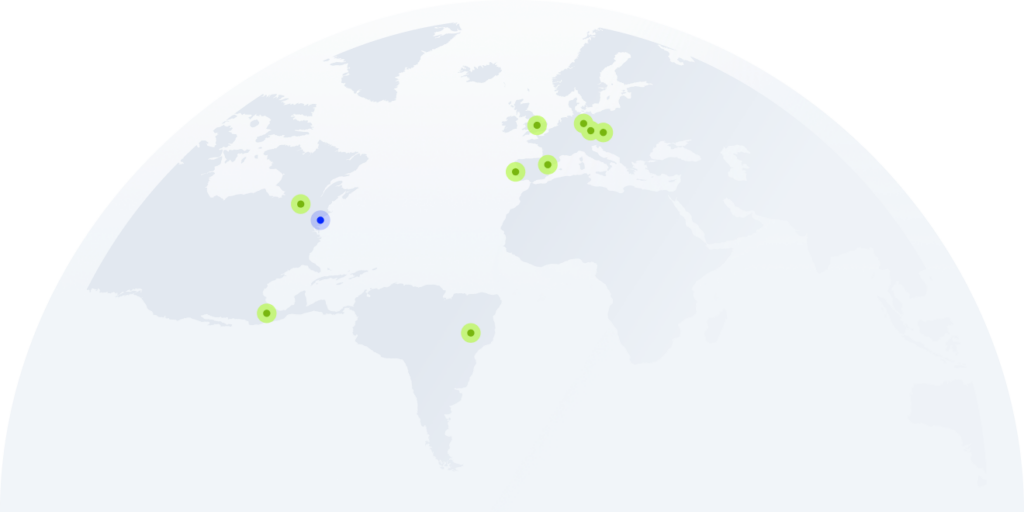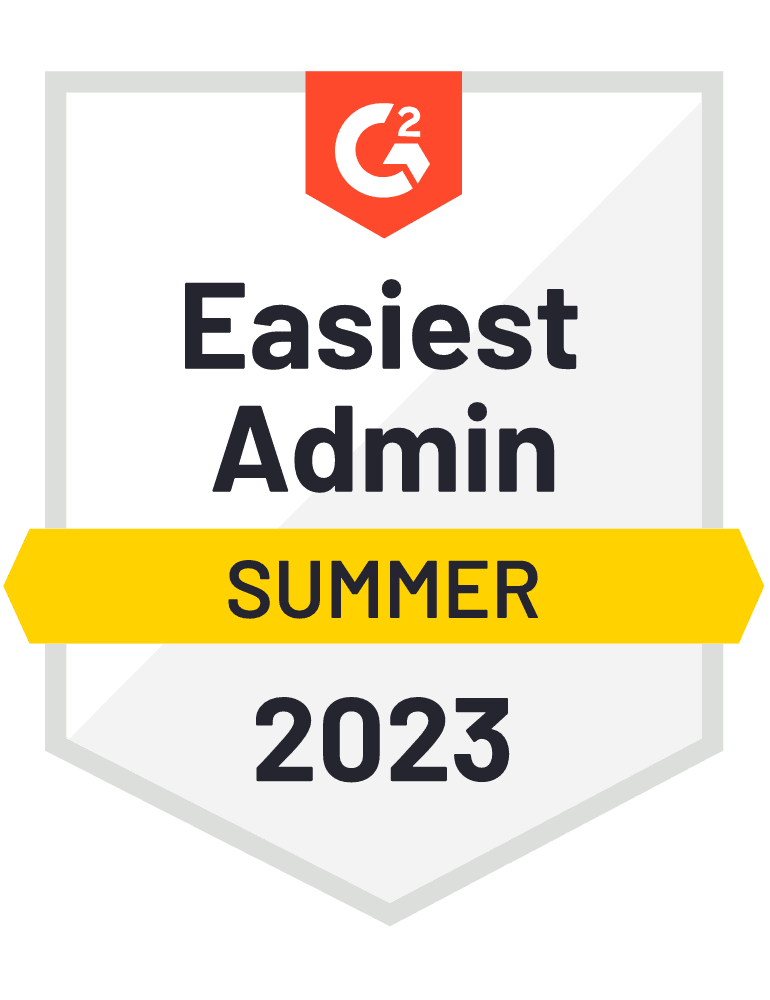Women in SaaS: Arielle from Donut
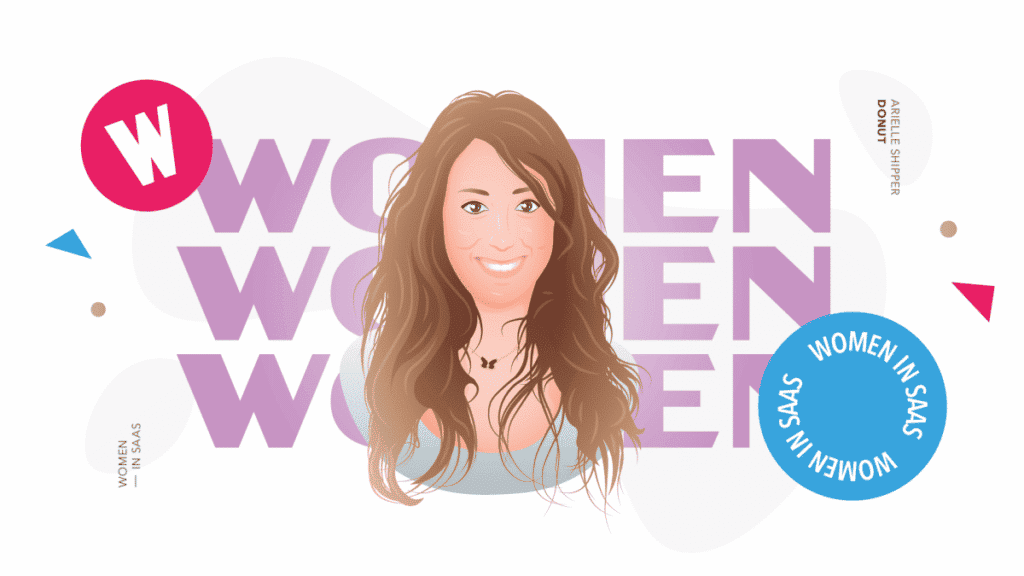
Breaking into tech is no easy task. Leaping from the hierarchical world of publishing into the chaotic land of startups comes with a never-ending stream of surprises and challenges that this woman has met with aplomb.
As Donut’s Head of Customer Operations, Arielle earned her way into company leadership through grit, versatility, and excellence. Sharing what she’s learned along the way, she reminds us that humility is not the opposite of confidence.
Can you please introduce yourself, your position and the company you work for?
Hi CloudTalk! Thanks so much for sharing the mic with women in tech. I’m Arielle Shipper, the Head of Customer Operations at Donut. I was the first employee and joined three and a half years ago, so I’ve been fortunate to wear a lot of hats. Since I’ve been at Donut, I’ve done everything from product sprints and press launches to customer support.

What inspired or led you to enter the SaaS field/tech startup world?
I started my career in (print!) publishing and, after a few years, I felt like I wanted a faster-paced environment that was keeping up with changes in the market and evolving technology.
My brother got me interested in this thing called startups, and made a few introductions to people who shared more about their experiences. Once I got a sense for the opportunities that were out there, I never looked back.
Did you study technology? Do you feel it’s important to have a tech education in order to get a job in a tech startup?
I’m the proud recipient of a good old liberal arts degree, and my only formal tech education has come in the form of part-time adult education courses I’ve taken as a post-grad in front-end web development and data analytics.
While I might not have learned to use SQL or the fundamentals of a SaaS business in school, I will say that I learned a lot of other useful skills that have been building blocks for acquiring tech-relevant skills: how to think critically and creatively, how to ask thoughtful questions, how to learn quickly, and how to effectively communicate.
I think tech education—of any kind, not just a four-year degree—can be helpful, especially for very technical roles like developing AI, but it’s not the only path. There are so many incredibly talented and knowledgeable folks that are self-taught or learned on the job.
It’s also important to remember that engineers and data scientists aren’t the only roles at tech companies. They’re important, but so are the teams working on customer support, sales, marketing, design, etc.! A company can’t run successfully without all of those roles.
Thinking back to your journey and how you arrived at where you are today, is there anything you’d change if you could?
What a great question! It’s a little hard to articulate, but I think the thing I’d change is to be less deferential. Publishing was very rigidly hierarchical, which bred some stay-in-your-lane tendencies that I’ve had a hard time overcoming. In the intervening years, there have been some business or goal questions I haven’t pushed on, or rooms I’ve assumed I haven’t belonged in, and that’s probably hampered my growth at times.
I keep trying to remind myself that humility is not the opposite of confidence. If I approach my work with a guiding ethos that includes honesty, dedication, and open-mindedness, it’s enough to earn me the right to ask questions, express opinions, and make suggestions.
What piece of advice would you give to your freshman self?
Luckily, I didn’t have to give it to myself. As I was learning the ropes of the professional world starting in high school and throughout college, my grandfather gave me two pieces of advice that have stuck with me:
#1: If you don’t ask, you don’t get. In other words, you can’t wait for the world to hand you something; you have to ask for it. Ask nicely, ask judiciously, and come prepared with appropriate reasons, but don’t be afraid to ask.
#2: The most successful negotiations are the ones in which neither party walks away completely satisfied. It means that true compromise was achieved, and it wasn’t a winner-take-all deal.
What sort of impact do you feel from working in a male-dominated industry/environment?
I’m fortunate to have worked for companies that value inclusivity of all kinds (not just gender-based), but that’s part luck and part acting with intent. During interview processes, I’ve sought companies that acknowledge the existence of systemic sexism and racism, and put effort into creating more equitable workplaces. I’ve also specifically looked for female leadership within a company, which is a clue to the growth and mentorship opportunities that might be available to me as an employee.

I won’t lie and say that it’s 100% roses and sunshine; I’ve had my fair share of imposter syndrome, facepalm moments, and outright “seriously??” moments, but I’ve tried to channel those frustrations into sponsorship and opening doors for other women or underrepresented folks in tech—because we’ll only see change if we diversify the seats at the table.
Have you come across any hurdles that stem from gender inequality?
I’ve definitely experienced both privilege and challenges working in tech. One memorable moment: During an interview, the man interviewing me looked at my engagement ring and said something to the effect of, “I see you have someone taking care of you at home, so salary shouldn’t really be an issue.”
This isn’t the best, worst, or only example of gender inequality out there, but it’s a moment that did have a profound impact.
Do you see a lack of female presence at your startup? If so, how do you think this could be changed?
While gender diversity is only one of the metrics that we care about, our engineering lead, product lead, and head of customer operations (me!) are all women – so no! I will say that we didn’t accidentally get to this kind of female representation in leadership and the company in general (Donut is more than 50% female). That being said, we still have a long way to go in terms of other dimensions of diversity.
We’ve put time and effort into inclusive hiring practices that value all kinds of diversity, not just gender. I’ve also witnessed a lot of sponsorship at Donut and, despite our small team size, a women’s employee resource group has also been really helpful for requesting support and mentorship when it’s needed

What do you see as the added value of having more female teammates at a tech company?
The value of representation can’t be overstated. It impacts everything from how a product is developed to what kinds of behaviors your culture rewards or punishes. It also has a deep impact on career trajectory.
There’s a reason why watching Vice President Kamala Harris being sworn in was such a huge moment. Many millennial women may have grown up being told they can do whatever they want—including being in the White House—but that doesn’t actually become a possibility until someone has achieved it. The work doesn’t stop there, but that moment of representation is still an important milestone.
How can male teammates support their female colleagues in growing professionally? And do you have the first-hand experience with this positive behavior?
Be an ally. Acknowledge your privilege, and use it as leverage to create change for others. I think this applies to everyone, but of course, this is a crucial step to creating an inclusive environment for women in tech.
I’ve been lucky to experience some good examples of allyship. A recent example: I did a joint informational interview with a male leader at Donut and an external candidate. That candidate was frankly patronizing and, in a number of ways, made it clear they thought I was irrelevant to the decision at hand. My interview partner acknowledged it immediately after the call, named the specific ways in which they’d been insulting and patronizing, and offered to follow up with them (and even give them some constructive feedback) so I wouldn’t have to interact with them anymore.
Do you have a recommendation for some books/blogs/podcasts/inspirational women or organizations?
Yes! There’s so much wonderful inspiration out there, but here are three top-of-mind resources.
Brené Brown is a research professor in shame, vulnerability, and courage. She inspired me to go back to therapy, and was a great source of inspiration as I moved into a leadership position. If you prefer to read, check out The Gifts of Imperfection or Dare to Lead. If you prefer to listen, try her podcast Unlocking Us. And if you like to watch, The Call to Courage is my favorite Netflix special.
Tressie McMillan Cottom is a professor and sociologist that talks frankly about inequality, technology, and culture. Thick and Other Essays was a finalist for the 2019 National Book Award, and is a beautifully written analysis of race, gender, and capitalism that was truly eye-opening. Her Twitter account is also a must-follow.
Roxane Gay, Lindy Nash, Kara Swisher, Austin Channing Brown—all amazing and worth your attention. I could go on for pages.
In terms of organizations, I’ve volunteered for Wave, which offers mentorship for female and nonbinary students looking to break into tech. I’ve met some kind, bright, super smart and determined folks through the program, and recommend it for anyone looking to help diversify tech.
In case you missed it, here’s another story – Kelly from Coschedule
Women in SaaS initiative
Did you know that only 3% of females say a career in technology is their first choice and only 5% of leadership positions in technology are held by a woman? With our new initiative – Women in SaaS interviews, we want to inspire more women to join SaaS field & technology and combat prejudges connected to technology.
Every two weeks, you can look forward to interviews with inspirational ladies who decided on a career path in SaaS. In our next article, we will talk to Anna from Leadfeeder.













